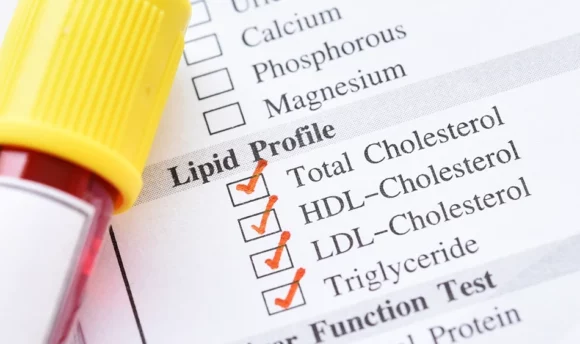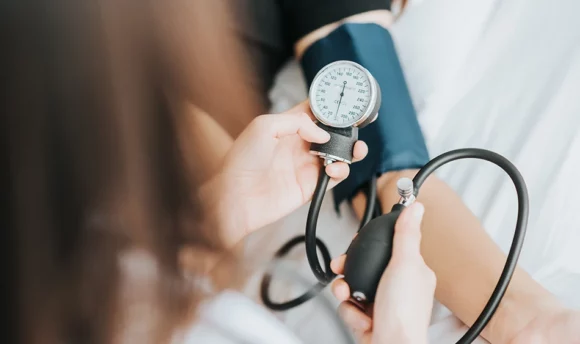Heart Rate vs. Blood Pressure: They're Not the Same Thing
Doctors use both blood pressure and heart rate monitoring to evaluate aspects of your health. But what is the difference between the two? Does one affect the other? Here we identify the difference and the relationship between heart rate and blood pressure.

It’s normal to get a heart rate and blood pressure reading simultaneously during a trip to the doctor’s office. It provides an insight into your heart health and is routine practice for identifying heart disease risk.
While many people associate the two together, heart rate and blood pressure are very different and identified by two different measurements. Equally, they do not always rise and fall in sync. It’s important to know the difference to fully understand your heart’s performance.
With this information, your doctor can identify any underlying health problems. They are able to provide an early diagnosis and set you up with a treatment plan before complications arise.
In this article, we explain the difference between measuring blood pressure and heart rate and whether they are linked.
Heart Rate vs. Blood Pressure – What’s the Difference?
Your heart rate identifies the number of times your heart beats per minute, while your blood pressure quantifies the force of blood flow against the artery walls as it travels through your blood vessels. Both give an indication of your heart health but require two different methods to obtain the measurements.
Heart rate and blood pressure numbers reveal whether your heart is functioning as it should or if it is working overtime to keep blood flowing effectively.
A rising heart rate is expected during exercise, as your heart works faster to get more blood to your muscles. Your blood pressure may also increase temporarily.
But if your heart races frequently, even when resting, it’s important to see a doctor to rule out any underlying health conditions. Having a higher blood pressure also poses a threat to your health.
What Is Blood Pressure?
Blood pressure is the term that describes the force of blood against your artery walls as your heart pumps blood around the body. It is measured using a blood pressure cuff called a sphygmomanometer that wraps around your upper arm.
The reading records two numbers showing your systolic and diastolic pressure. Systolic pressure measures the pressure as your heart beats and carries blood to the arteries. Diastolic pressure measures the pressure between heartbeats when your heart is at rest.
Measuring blood pressure determines whether you have normal or high blood pressure. High blood pressure, medically called hypertension, is when the force within your blood vessels is abnormally high. If left untreated, hypertension can increase your risk of several health threats, including heart attack, stroke, and heart failure.
Identifying high blood pressure enables you to get ahead and take steps to return your blood pressure to a healthy range. 120/80mmHg or under is considered a normal blood pressure reading.
Low blood pressure (hypotension) is when the force of blood flowing through the blood vessels is unusually low. If you have hypotension, you may feel dizzy and faint. It is critical to monitor, as an abrupt drop in pressure can be life-threatening.
What Is Heart Rate?
Heart rate is the number of times your heart beats per minute. It is also known as your pulse rate, and the autonomic nervous system controls it. How fast your heart beats can alternate based on your lifestyle and other factors, such as age, general health, and taking medications.
A normal heart rate can vary between individuals, but generally, a resting heart rate between 60 and 100 beats per minute is considered normal. A resting heart rate over 100 is categorized as fast, while anything below 60 is considered slow.
It’s normal for some people to have a slower heart rate. Those who exercise regularly typically have lower resting heart rates.
You can check your heart rate by taking your pulse on your wrist or neck and counting how many times your heart beats in a one-minute duration.
Does Heart Rate Affect Blood Pressure?
Blood pressure and heart rate don’t always rise and fall simultaneously. When your heart rate increases, it doesn’t automatically trigger your blood pressure to rise at the same rate, and vice versa.
As your heart beats extra, healthy blood vessels dilate and allow increased blood flow. The expansion of healthy blood vessels helps keep your blood pressure stable. While your heart rate may increase substantially, it may cause only a slight increase in blood pressure.
Sometimes, heart rate does change in response to blood pressure. This is usually in extreme cases where heart rate is too high or blood pressure is too low.
With significantly low blood pressure, heart rate increases as your heart tries to maintain blood flow to the organs as usual. On the other hand, blood pressure tends to drop if the heart beats at a dangerously high rate, as the heart struggles to pump blood properly.
FAQs
High blood pressure and low heart rate together are possible, although they are not a common occurrence. These instances are more likely to occur when taking high blood pressure medication. Otherwise, the combination may indicate a problem, such as untreated high blood pressure.
A good resting heart rate for most healthy adults ranges between 60 and 100 beats per minute. However, heart rates can vary from person to person due to factors such as age, physical activity level, and overall health. Lower resting heart rates are normal among athletes and individuals who get regular exercise.
Common stressors trigger most racing heartbeats in everyday life, such as stress, anxiety, caffeine, dehydration, and certain medications. However, sometimes, a fast and irregular heartbeat can be a warning sign of a heart condition. It’s best to consult your doctor for a medical evaluation.
A Word From Our MD
Blood pressure and heart rate are two important indicators of heart health. Both of these measurements are directly associated with the heart. Blood pressure represents the force of blood traveling within the blood vessels, while heart rate is the number of times your heart beats every minute.
Despite the connection with the heart, the two don’t automatically increase and decrease at the same rate. Your heart rate can rise without impacting your blood pressure as healthy blood vessels become larger to allow more blood flow.
This is especially true during exercise as your heart rate increases significantly while your blood pressure only slightly increases.
Heart rate can measure your cardiovascular activity and oxygen consumption, but it cannot confirm if you have high or low blood pressure. Therefore, monitoring both factors is vital in evaluating overall health, especially in patients with hypertension.
Elevated heart rate can be associated with elevated blood pressure. It is critical to seek treatment to lower blood pressure if you have hypertension, as it increases your risk of heart disease, kidney disease, heart attack, and stroke.
Conclusion
Heart rate vs. blood pressure is a frequent discussion, and this article has covered the differences between them. Although they’re commonly measured together in the doctor’s office, they cover different aspects of heart health.
The best way to keep a healthy heart rate and blood pressure is by leading a healthy lifestyle that includes regular physical activity and a well-balanced diet.
If you are concerned about a higher than average heart rate or you think you might have high blood pressure, you should seek medical advice from your healthcare provider.

















































 Select your language:
Select your language: 








